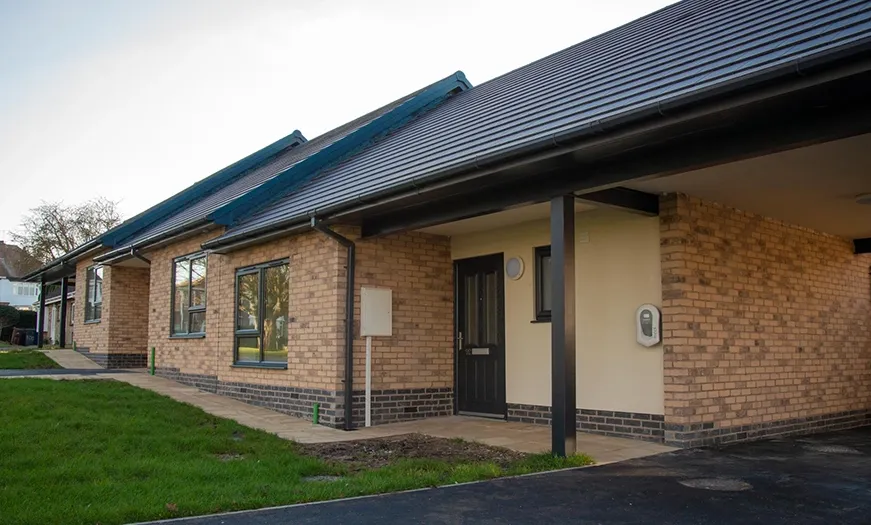This Update includes the following

The ALMO Model: first results from Tenant Satisfaction Measures
A new report commissioned by the National Federation of ALMOs reviews initial TSM performance using data collected by Housemark during the first six months of surveys from April to September 2023. Data was provided by 19 ALMOs and comparisons made with data from 53 local authorities with direct management.
The analysis shows that at the median point ALMOs outperformed local authorities on all TSMs and housing management metrics analysed. They also perform better on value for money, with an average overall cost per property of £2537; this is £81 lower than the direct local authority management average.
The headline finding is that on average the better performance and higher tenant satisfaction delivered by an ALMO costs no more than direct delivery of housing services by a local authority. In many areas, the ALMO model costs less and offers better value for money.
Report Findings
Overall satisfaction
Whilst it should be noted that overall satisfaction is declining for all types of landlords – the data indicates that it has declined less for ALMOs than for local authorities generally. The TSM data so far shows that 76 per cent of ALMO tenants are satisfied with their landlord’s services overall, compared to the local authority median of 65 per cent. Housemark also looked back at STAR data for the past 5 years highlighting that overall satisfaction among ALMO tenants has been consistently higher – between six and 11 percentage points – compared to local authorities generally.

Repairs TSMs
ALMOs perform well in this area. On average, they complete a higher proportion of non-emergency repairs within target timescale at 91 per cent, compared to a local authority median of 85 per cent; and a higher percentage of emergency repairs within target timescale (99 per cent versus 95 per cent). Satisfaction with repairs is 12 percentage points higher.
Complaints handling
On average 88 per cent of stage one complaints and 97 per cent of stage two complaints are completed within the Ombudsman’s target timescales. This compares favourably with performance in directly managed local authority stock (74 per cent and 70 per cent). Average satisfaction with ALMOs‘ complaints handling is also 13 percentage points higher.
Respectful and helpful engagement
ALMOs achieve a higher level of satisfaction across all three TSMs in the tenant engagement category.
Neighbourhood Management
ALMOs score almost eight percentage points higher on making ‘a positive contribution to the neighbourhood’ than local authorities generally. They also score 11 percentage points higher for satisfaction with the landlord’s approach to handling anti-social behaviour.
Value for Money
ALMOs deliver better value for money across housing management, responsive repairs, void works, and major works services. The average cost per property for ALMO services is £2,537 compared to £2,618 for local authorities.
Awaab’s Law Consultation
The Social Housing Regulation Act 2023 included provisions for the introduction of Awaab’s Law which aims to protect residents from health and safety risks in their homes by requiring landlords to investigate and fix reported health hazards within specified timeframes. The consultation seeks views on how Awaab’s Law should be implemented, specifically regarding time scales for investigations and carrying out repairs.
The consultation proposes the introduction of a new legal obligation to investigate hazards within 14 calendar days with a requirement to start work on remedying identified hazards within 7 days. Where emergency works are identified, these must be actioned within 24 hours. If the property cannot be made safe within the specified timescales, the registered provider must offer to arrange for the occupant(s) to stay in suitable alternative accommodation until it is safe to return. These new rules will form part of a tenancy agreement, so that tenants can hold landlords to account by law if they fail to respond to issues and provide a decent home.
The consultation proposes that Awaab’s Law should take into account the 29 health and safety hazards set out in the Housing Health and Safety Rating System (HHSRS) but must additionally take into account the vulnerabilities of those living in the household.
Hazards in scope are those that pose a significant risk to the health or safety of the actual residents of the property, therefore, identifying whether a repair meets the threshold of Awaab’s Law will not necessarily match current routine or emergency repair definitions. Where residents have vulnerabilities, routine repairs will potentially fall within the scope of Awaab’s Law.
The consultation sets out new higher expectations in terms of record keeping around repairs. There is also a new requirement to provide residents with a written summary of findings within 48 hours of the investigation setting out if a hazard was found along with details of the follow up response and timescales as well as how to contact the landlord with any queries.
Cost Implications
The consultation makes an assessment of the cost implications for landlords of implementing Awaab’s Law. It is assumed that for the most part implementation costs will be relatively low as any works required are not a new burden but reflect existing landlord responsibilities and therefore shouldn’t cost more than under current arrangements. In practice, the introduction of tight timescales and increased demand for some specialist contractors are likely to increase costs in some areas.
It is estimated that the cost of preparing and sending written summaries to residents following property inspections will cost local authority registered providers around £5.1m annually, but the assumption is that automation will significantly reduce this figure over time. In addition, a small one-off element of transition costs is identified relating to staff training and familiarisation with the new arrangements (amounting to a total of a total of £513,000 across the local authority sector overall).
This is an 8-week consultation closing on 5th March 2024.

Recent Publications
Building Safety ebulletin: 15 January 2024 (govdelivery.com)
This regular bulletin provides updates on current building safety issues and developments within the Building Safety Regulator. This edition includes information on high rise registration and monitoring arrangements for the building control profession. There is also a list of on-line building safety webinars that are available to watch on demand.
Two Nations: The State of Poverty in the UK – Centre for Social Justice (December 2023)
This interim report considers the challenges involved in improving the lives of the poorest communities in the UK focussing on the root causes of poverty and the limitations of current social policy. It brings together evidence from over 250 frontline charities, social enterprises and local organisations working with people in the toughest situations.
Diary Date - CWAG General Meeting
The next CWAG General Meeting will we held on Teams on Tuesday 27th February 2024 (10.00 – 12.00). The meeting will focus on Tenant Satisfaction Measures (TSMs) and preparing for the forthcoming changes to regulation.
The programme so far includes the following:
- Presentation from Jonathan Cox ( Director of Data and Business Intelligence at Housemark) who will be discussing learning to date from TSMs with a particular focus on councils with ALMOs.
- CWAG Executive Member Lucy Heath will be sharing her experience and feedback from the RSH pilot inspection of Shropshire Council (and its ALMO) which took place as part of round 3 of the inspection pilot programme at the end of last year.
